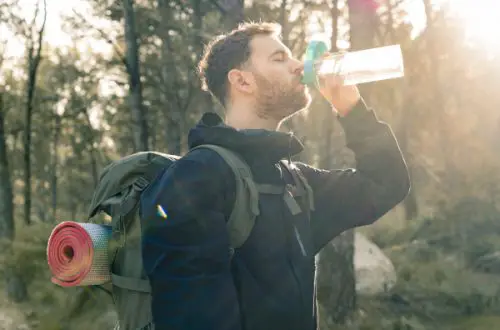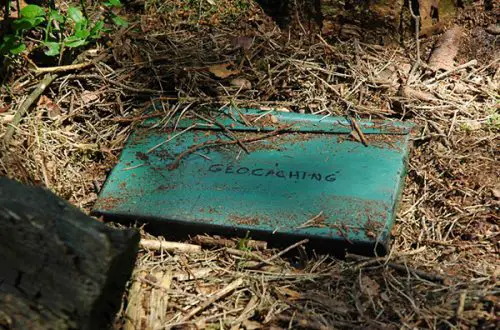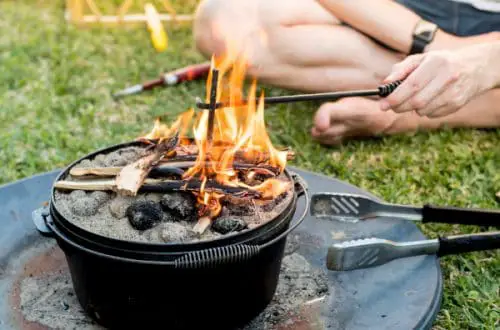Zero Waste Camping
Table of Contents
Who knew that these three words would entirely change the way we see camping?
As much as it pains me to say it, camping can leave an enormous negative impact on our beautiful countryside and wilderness if we are not cautious enough.
Wondering what can be done to make the camping experience much greener? Here are some handful of tips that our team has come up with:
Step 1: Food
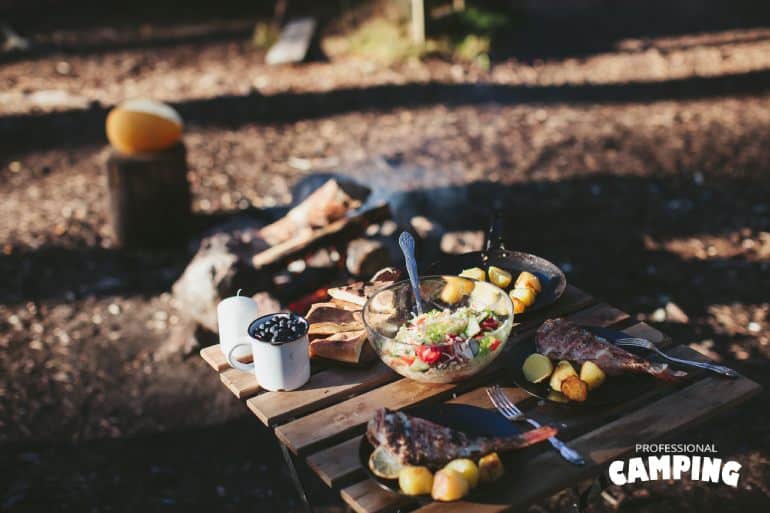
Your journey begins as soon as you step out of your home. It’s time for the rotting, reducing and refusing game to start.
Rot:
The easiest way to turn your food waste into a resource is to transfer the food scraps into gardening gold. You will surely come across a lot of parks, gardens and trees who surely needs food, too. If your food gets rotten, make it compost for those trees and plants that you will pass by, which will make your camping experience much more bearable.
Reduce:
When we say reduce, we mean minimise waste. You need to step up your game and buy your stuff from the supermarket that comes in dispensers rather than the plastic or paper bags. Paper bags are the kinds of stuff that create the most mess to the environment. So, why don’t you think of carrying your food and snacks with you in jars instead of such enemies to the environment?
Refuse:
What’s the hardest to refuse is those single-use objects like plastic utensils, paper napkins, plastic bags, takeaway shells and so on. That’s because we humans are lazy. But in order to go for zero-waste camping, you really need to change your status quo from these planet-killing objects to recyclable ones. Therefore, to do so, you need to learn to say no.
Although it may feel like you’re ungrateful or unfriendly, you need to make this clear you are genuinely trying to make a difference. Smile and say no. Take some time to explain why this is important to you. What’s the worst that could happen? The person would chuckle or change the topic, that’s all.
Step 2: Be Water Wise
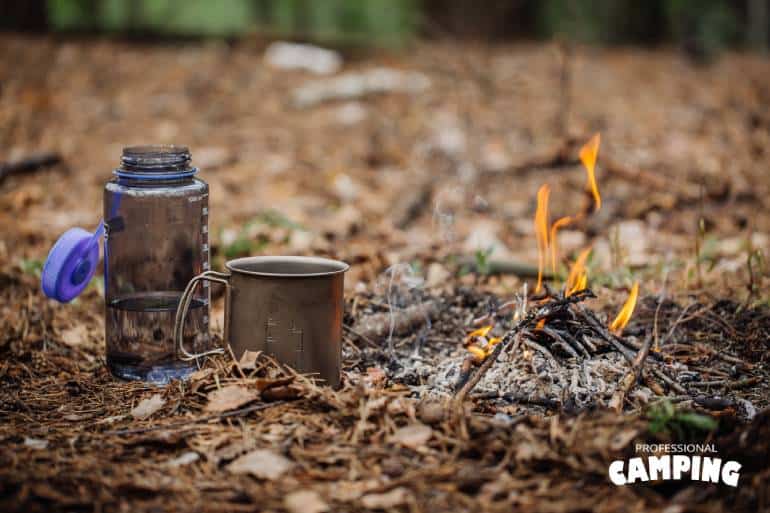
Water is a basic necessity, and when you go camping, you surely need to drink at least 3 litres every day! So, you need to ensure that the local water quality of the area that you’re heading towards is safe to drink. You will be surprised to know that not many places have potable tap water.
Worst case scenario might be that the tap water in that area is not drinkable. But it doesn’t make sense for you to carry about 5 litres of water with you on the go. Instead, check out some of these tips on what you should be doing.
Step 3: Hygiene
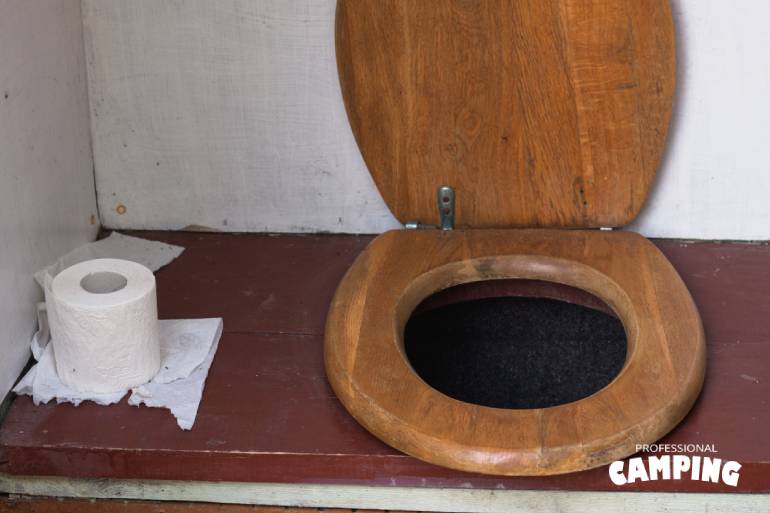
Perhaps the most challenging thing to do when you go camping is to maintain your hygiene needs. While you are the neat freak at home or at work, but zero waste camping adventures are entirely different. Keeping the planet clean may affect your personal hygiene, and that’s why we have these tricks and tips for the sweaty traveller.
Buy solid shampoo and soap
Solid shampoo and soaps are always a go-to product for any emergency situations, and this is no exception. It’s going to make your backpack significantly lighter and make more room for you to carry other important stuff.
Use solid deodorants too
Obviously, you don’t want to be smelling like sweat and dirt on the go. You need gallons of perfume, which is a bit crucial for you to carry it in your backpack. Why don’t you go with deodorants? The smell stays longer, and it’s a great alternative to the sprays and intensive roll-ons.
Use menstrual cups instead of tampons
On average, you use about 12,000 tampons in your lifetime. And all that waste ends up in the ocean in the end. That’s intimidating!
Why don’t you think of switching to menstrual cups instead?
Trust us when we say this, but menstrual cups are so less icky than those absorbent materials that you need to change every 3 – 4 hours. If you are worried about the technicalities of a menstrual cup, then the internet is always there at the tips of your finger to help you get through any problems. Check out this piece from wikihow!
Step 4: Recycling
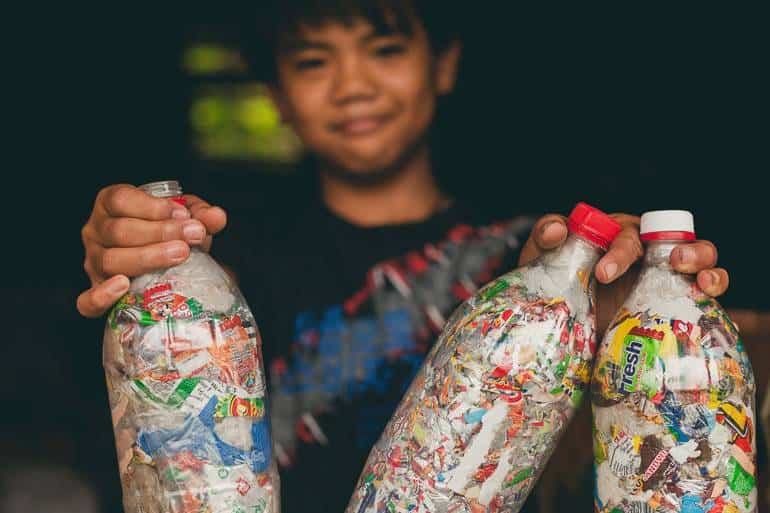
Photo: Wikimedia Commons
None of us is perfect, but the good news is that zero-waste camping isn’t all about perfection. It’s about your effort. There will be scraps in the end, but the question is, how much less could you scrap than your last camping trip? How much were you able to give the environment than take from it? Here’s one last trick on how you can reuse plastic bottles in your trip if you fail to not use them.
Eco-bricks. Reuse the plastic bottles to stuff it with non-biological waste and create a reusable building block. Take your mineral water bottle or a soda water bottle and pack it with dry and non-biodegradable materials like cigarette butts, chewing wrappers, dental floss and other scraps.
Basically, the concept is to store the wastes in one place rather than allowing them to circulate in areas, which would take thousands of years to biodegrade. Pack the scraps tightly in the bottle and keep it with you until you can drop it at an Eco brick project near you.
Bonus: A Few Things to Keep in Mind:
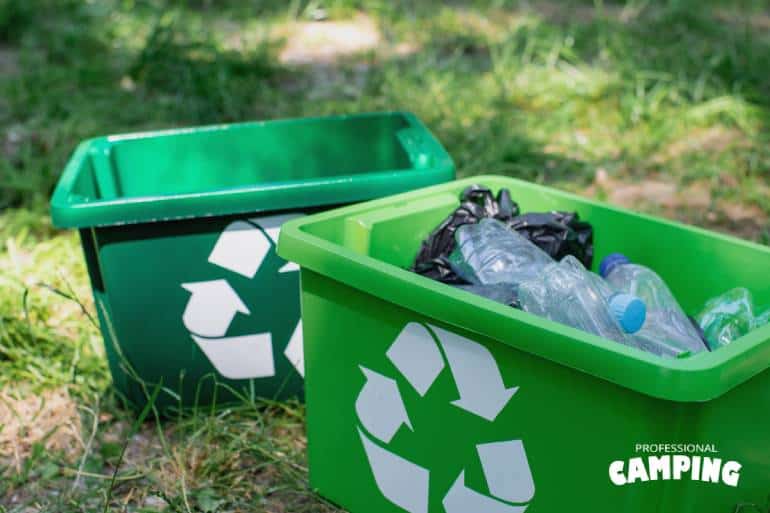
Bring road snacks:
When going on a trip, strictly avoid fast food. Firstly, they are dehydrating for your health and secondly, they also come in chemically-laden wrappers. So, merely pack some fresh fruits, nuts or pudding that will keep you light and healthy throughout the trip.
Mason jars to the rescue:
The power of these two-part lid jars is deadly. They seal almost any type of food and liquidly substances without the fear of leaking. Plus, it also doubles up as an extra cup. However, do keep in mind not to pour boiling hot liquid into it. And it saves you from all the waste. These jars are your camping companion.
Use less water to wash your dishes
Camping is an excellent way to find out smarter ways of doing everyday chores. In tune with that, it also teaches you how you can use a little water to wash your dishes rather than the unlimited supply you get at home.
Drink from cans than from bottles: Tin cans have more uses in a camping trip than those pesky bottles. They are lightweight, easy to pack in and readily recyclable.
Use towels instead of paper towels: If you use paper towels, chances are you would be throwing then here and there. Instead, use handkerchiefs and cloth towels.

Final Words…
The zero-waste camping movement is way more important than we can imagine. In a society where we are increasingly consuming materialistic foods, the packaging of it keeps haunting the Mother Nature even after we have “disposed of” it.
With simple changes in our mindset, it’s pretty easy for us to make a positive difference. Reducing plastic consumption, sustainably packing food and shopping more responsibly is all we have to do from our part.
On that note, we hope you found this our zero-waste camping hacks to be helpful. Remember, it’s a little effort that counts. Reducing the wastes begins from something as simple as selecting your gears, purchasing your food items and bringing recyclable items with you to camping.
We hope you have a lot of fun on your trip. Let us know if there are some additional tips that we’ve skipped. Happy Camping!
Sources:
Our Zero Waste Camping Challenge, Emily Carlstone
Nutritious Zero Waste Snack Ideas for Camping, Firefly Gathering


